Log in
Statistics
We have 474 registered usersThe newest registered user is bitaacademy
Our users have posted a total of 44248 messages in 6532 subjects
THAT’S ENTERTAINMENT
CLICK ON ANY OF THESE LINKS TO FIND OUR EXTREME ENTERTAINMENT
UPDATED :
71 WGT TUTORIALS & 32 YOUNG46 TUTORIALS
CLICK HERE TO SEE OVER 100 YOUTUBE VIDEO TUTORIALS . FROM WGTers , WGT & YOUNG46 FORUM UPDATE
TO THE MANY WELCOME GUESTS . THIS FORUM IS NO LONGER A COUNTRY CLUB WEBSITE FOR A WGT COUNTRY CLUB . PLEASE FEEL FREE TO READ THE FORUMS.
THERE ARE MANY TOPICS OF INTEREST . OR NOT . THIS WEBSITE IS AN INFORMATION AND ENTERTAINMENT WEBSITE ONLY .
MUCH OF THE CONTENT IS ARCHIVES OF PURPOSES PAST .
THERE ARE SOME MORE CURRENT TOPICS .
REGISTRATION IS NOT NECESSARY TO READ THROUGHOUT .
REGISTRATION IS EASY AND FREE . THIS IS AN AD FREE WEBSITE . NOTHING IS EVER REQUESTED FROM REGISTERED MEMBERS .
REGISTRATION ENABLES COMMENTING ON TOPICS . POSTING NEW TOPICS . FULL ACCESS TO THE WEBSITE IMAGE HOST . WHICH IS A VERY COMPLETE AND CONVENIENT TOOL .
PLEASE ENJOY .
TIER & AVERAGE REQUIREMENTS
BASIC LEVEL AND AVERAGE REQUIREMENTS , AND SATURATION

WHILE YOUR HERE
WHILE YOUR HERE :
CHECK OUT THE INCREDIBLE PHOTOGRAPHY IN
MY SERIES
THIS USED TO BE THE HOME OF OUR WORLD CLOCK . WHICH CAN NOW BE FOUND IN ITS OWN FORUM ON THE MAIN PAGE ..
THERE ARE MORE WORLD CLOCKS INSIDE HERE .
WORLD CLOCK
FB Like
ON THIS DAY 4 8 2023
Page 1 of 1
 ON THIS DAY 4 8 2023
ON THIS DAY 4 8 2023
This Day in History: April 8

2013: British politician Margaret Thatcher
, who was the United Kingdom's (and Europe's) first woman prime minister (1979–90) and the only British prime minister in the 20th century to win three consecutive terms, died at age 87.
Margaret Thatcher, in full Margaret Hilda Thatcher, Baroness Thatcher of Kesteven, née Margaret Hilda Roberts, (born October 13, 1925, Grantham, Lincolnshire, England—died April 8, 2013, London), British Conservative Party politician and prime minister (1979–90), Europe’s first woman prime minister. The only British prime minister in the 20th century to win three consecutive terms and, at the time of her resignation, Britain’s longest continuously serving prime minister since 1827, she accelerated the evolution of the British economy from statism to liberalism and became, by personality as much as achievement, the most renowned British political leader since Winston Churchill.
The daughter of Alfred Roberts, a grocer and local alderman (and later mayor of Grantham), and Beatrice Ethel Stephenson, Thatcher formed an early desire to be a politician. Her intellectual ability led her to the University of Oxford, where she studied chemistry and was immediately active in politics, becoming one of the first woman presidents of the Oxford University Conservative Association. After graduating in 1947 she worked for four years as a research chemist, reading for the bar in her spare time. From 1954 she practiced as a barrister, specializing in tax law. In 1951 she married a wealthy industrialist, Denis Thatcher (b. 1915—d. 2003), who supported her political ambition. The couple had twins, a son and a daughter, in 1953
Thatcher first ran for Parliament in 1950 but was unsuccessful, despite increasing the local Conservative vote by 50 percent. In 1959 she entered the House of Commons, winning the “safe” Conservative seat of Finchley in northern London. She rose steadily within the party, serving as a parliamentary secretary in the Ministry of Pensions and National Insurance (1961–64), as chief opposition spokesman on education (1969–70), and as secretary of state for education and science (1970–74) in the Conservative government of Edward Heath. While a member of the Heath cabinet (Thatcher was only the second woman to hold a cabinet portfolio in a Conservative government), she eliminated a program that provided free milk to schoolchildren, provoking a storm of controversy and prompting opponents in the Labour Party to taunt her with cries of “Thatcher the milk snatcher.” She also created more comprehensive schools—introduced by the Labour Party in the 1960s to make rigorous academic education available to working-class children—than any other education minister in history, though they were undermined during her tenure as prime minister. After Heath lost two successive elections in 1974, Thatcher, though low in the party hierarchy, was the only minister prepared to challenge him for the party leadership. With the backing of the Conservative right wing, she was elected leader in February 1975 and thus began a 15-year ascendancy that would change the face of Britain.

Margaret Thatcher
Thatcher led the Conservatives to a decisive electoral victory in 1979 following a series of major strikes during the previous winter (the so-called “Winter of Discontent”) under the Labour Party government of James Callaghan. As a prime minister representing the newly energetic right wing of the Conservative Party (the “Dries,” as they later called themselves, as opposed to the old-style moderate Tories, or “Wets”), Thatcher advocated greater independence of the individual from the state; an end to allegedly excessive government interference in the economy, including privatization of state-owned enterprises and the sale of public housing to tenants; reductions in expenditures on social services such as health care, education, and housing; limitations on the printing of money in accord with the economic doctrine of monetarism; and legal restrictions on trade unions. The term Thatcherism came to refer not just to these policies but also to certain aspects of her ethical outlook and personal style, including moral absolutism, fierce nationalism, a zealous regard for the interests of the individual, and a combative, uncompromising approach to achieving political goals.
The main impact of her first term was economic. Inheriting a weak economy, she reduced or eliminated some governmental regulations and subsidies to businesses, thereby purging the manufacturing industry of many inefficient—but also some blameless—firms. The result was a dramatic increase in unemployment, from 1.3 million in 1979 to more than double that figure two years later. At the same time, inflation doubled in just 14 months, to more than 20 percent, and manufacturing output fell sharply. Although inflation decreased and output rose before the end of her first term, unemployment continued to increase, reaching more than three million in 1986.
Thatcher embarked on an ambitious program of privatization of state-owned industries and public services, including aerospace, television and radio, gas and electricity, water, the state airline, and British Steel. By the end of the 1980s, the number of individual stockholders had tripled, and the government had sold 1.5 million publicly owned housing units to their tenants.
Nonetheless, rising unemployment and social tensions during her first term made her deeply unpopular. Her unpopularity would have ensured her defeat in the general election of 1983 were it not for two factors: the Falkland Islands War (1982) between Britain and Argentina, over possession of a remote British dependency in the South Atlantic, and the deep divisions within the Labour Party, which contested the election on a radical manifesto that critics dubbed the “longest suicide note in history.” Thatcher won election to a second term in a landslide—the biggest victory since Labour’s great success in 1945—gaining a parliamentary majority of 144 with just over 42 percent of the vote.

Margaret Thatcher
Thatcher entered office promising to curb the power of the unions, which had shown their ability to bring the country to a standstill during six weeks of strikes in the winter of 1978–79. Her government enacted a series of measures designed to undermine the unions’ ability to organize and stage strikes, including laws that banned the closed shop, required unions to poll their members before ordering a strike, forbade sympathy strikes, and rendered unions responsible for damages caused by their members. In 1984 the National Union of Mineworkers began a nationwide strike to prevent the closing of 20 coal mines that the government claimed were unproductive. The walkout, which lasted nearly a year, soon became emblematic of the struggle for power between the Conservative government and the trade union movement. Thatcher steadfastly refused to meet the union’s demands, and in the end she won; the miners returned to work without winning a single concession.
A terrorist bombing at a Conservative Party conference in Brighton in 1984, the work of the Irish Republican Army, nearly killed Thatcher and several senior members of her government. After battling Ken Livingstone’s Labour-led London government, Thatcher abolished the Greater London Council in 1986. By the end of Thatcher’s second term, few aspects of British life had escaped the most sweeping transformation of Britain since the postwar reforms of the Labour Party.

Ronald Reagan and Margaret Thatcher

Margaret Thatcher

1983 G7 Summit
In foreign affairs, the Falklands War illuminated her most significant international relationship, with Ronald Reagan, president of the United States (1981–89). Thatcher and Reagan, who together made the 1980s the decade of conservatism, shared a vision of the world in which the Soviet Union was an evil enemy deserving of no compromise, and their partnership ensured that the Cold War continued in all its frigidity until the rise to power of the reform-minded Soviet leader Mikhail Gorbachev in 1985. In keeping with her strong anticommunism—a 1976 speech condemning communism earned her the nickname “Iron Lady” in the Soviet press—Thatcher strongly supported the North Atlantic Treaty Organization (NATO) and Britain’s independent nuclear deterrent, a stance that proved popular with the electorate, given the Labour Party’s repudiation of Britain’s traditional nuclear and defense policies. In Africa, Thatcher presided over the orderly establishment of an independent Zimbabwe (formerly Rhodesia) in 1980 after 15 years of illegal separation from British colonial rule under a white minority. However, she encountered considerable criticism both at home and abroad for her opposition to international sanctions against the apartheid regime of South Africa.
The second half of Thatcher’s tenure was marked by an inextinguishable controversy over Britain’s relationship with the European Community (EC). In 1984 she succeeded, amid fierce opposition, in drastically reducing Britain’s contribution to the EC budget. After her third electoral victory in 1987, she adopted a steadily more hostile attitude toward European integration. She resisted “federalist” continental trends toward both a single currency and a deeper political union. Her traditionally pro-European party became divided, and a string of senior ministers left the Cabinet over the issue.
The implementation of a poll tax in 1989 produced outbreaks of street violence and alarmed the Conservative rank-and-file, who feared that Thatcher could not lead the party to a fourth consecutive term. Spurred by public disapproval of the poll tax and Thatcher’s increasingly strident tone, Conservative members of Parliament moved against her in November 1990. Although she defeated her most senior opponent, former defense minister Michael Heseltine, by 204 votes to Heseltine’s 152, her total fell four votes short of the necessary majority plus 15 percent, and she decided not to contest the election in a second ballot. On November 22 she announced her resignation as Conservative Party leader and prime minister, paving the way for her replacement by John Major six days later.

Margaret Thatcher
In retirement, Margaret Thatcher remained a political force. She continued to influence internal Conservative Party politics (often to the dismay of Major), and Thatcherism shaped the priorities of the Labour Party, which she had kept out of office for more than a decade. She remained a member of Parliament until the 1992 election and was subsequently elevated, as a peeress for life, to the House of Lords. She continued to speak and lecture, notably in the United States and Asia, and established the Thatcher Foundation to support free enterprise and democracy, particularly in the newly liberated countries of central and eastern Europe. In 1995 she became a member of the Order of the Garter.
Following a series of minor strokes, she retired from public speaking in 2002. Thatcher’s daughter, Carol, revealed in her 2008 memoir A Swim-On Part in the Goldfish Bowl that her mother had been showing symptoms of progressive dementia since 2000.
Featured Event

2013: British politician Margaret Thatcher
, who was the United Kingdom's (and Europe's) first woman prime minister (1979–90) and the only British prime minister in the 20th century to win three consecutive terms, died at age 87.
Margaret Thatcher, in full Margaret Hilda Thatcher, Baroness Thatcher of Kesteven, née Margaret Hilda Roberts, (born October 13, 1925, Grantham, Lincolnshire, England—died April 8, 2013, London), British Conservative Party politician and prime minister (1979–90), Europe’s first woman prime minister. The only British prime minister in the 20th century to win three consecutive terms and, at the time of her resignation, Britain’s longest continuously serving prime minister since 1827, she accelerated the evolution of the British economy from statism to liberalism and became, by personality as much as achievement, the most renowned British political leader since Winston Churchill.
Early years
The daughter of Alfred Roberts, a grocer and local alderman (and later mayor of Grantham), and Beatrice Ethel Stephenson, Thatcher formed an early desire to be a politician. Her intellectual ability led her to the University of Oxford, where she studied chemistry and was immediately active in politics, becoming one of the first woman presidents of the Oxford University Conservative Association. After graduating in 1947 she worked for four years as a research chemist, reading for the bar in her spare time. From 1954 she practiced as a barrister, specializing in tax law. In 1951 she married a wealthy industrialist, Denis Thatcher (b. 1915—d. 2003), who supported her political ambition. The couple had twins, a son and a daughter, in 1953
Thatcher first ran for Parliament in 1950 but was unsuccessful, despite increasing the local Conservative vote by 50 percent. In 1959 she entered the House of Commons, winning the “safe” Conservative seat of Finchley in northern London. She rose steadily within the party, serving as a parliamentary secretary in the Ministry of Pensions and National Insurance (1961–64), as chief opposition spokesman on education (1969–70), and as secretary of state for education and science (1970–74) in the Conservative government of Edward Heath. While a member of the Heath cabinet (Thatcher was only the second woman to hold a cabinet portfolio in a Conservative government), she eliminated a program that provided free milk to schoolchildren, provoking a storm of controversy and prompting opponents in the Labour Party to taunt her with cries of “Thatcher the milk snatcher.” She also created more comprehensive schools—introduced by the Labour Party in the 1960s to make rigorous academic education available to working-class children—than any other education minister in history, though they were undermined during her tenure as prime minister. After Heath lost two successive elections in 1974, Thatcher, though low in the party hierarchy, was the only minister prepared to challenge him for the party leadership. With the backing of the Conservative right wing, she was elected leader in February 1975 and thus began a 15-year ascendancy that would change the face of Britain.
Prime minister

Margaret Thatcher
Thatcher led the Conservatives to a decisive electoral victory in 1979 following a series of major strikes during the previous winter (the so-called “Winter of Discontent”) under the Labour Party government of James Callaghan. As a prime minister representing the newly energetic right wing of the Conservative Party (the “Dries,” as they later called themselves, as opposed to the old-style moderate Tories, or “Wets”), Thatcher advocated greater independence of the individual from the state; an end to allegedly excessive government interference in the economy, including privatization of state-owned enterprises and the sale of public housing to tenants; reductions in expenditures on social services such as health care, education, and housing; limitations on the printing of money in accord with the economic doctrine of monetarism; and legal restrictions on trade unions. The term Thatcherism came to refer not just to these policies but also to certain aspects of her ethical outlook and personal style, including moral absolutism, fierce nationalism, a zealous regard for the interests of the individual, and a combative, uncompromising approach to achieving political goals.
The main impact of her first term was economic. Inheriting a weak economy, she reduced or eliminated some governmental regulations and subsidies to businesses, thereby purging the manufacturing industry of many inefficient—but also some blameless—firms. The result was a dramatic increase in unemployment, from 1.3 million in 1979 to more than double that figure two years later. At the same time, inflation doubled in just 14 months, to more than 20 percent, and manufacturing output fell sharply. Although inflation decreased and output rose before the end of her first term, unemployment continued to increase, reaching more than three million in 1986.
Thatcher embarked on an ambitious program of privatization of state-owned industries and public services, including aerospace, television and radio, gas and electricity, water, the state airline, and British Steel. By the end of the 1980s, the number of individual stockholders had tripled, and the government had sold 1.5 million publicly owned housing units to their tenants.
Nonetheless, rising unemployment and social tensions during her first term made her deeply unpopular. Her unpopularity would have ensured her defeat in the general election of 1983 were it not for two factors: the Falkland Islands War (1982) between Britain and Argentina, over possession of a remote British dependency in the South Atlantic, and the deep divisions within the Labour Party, which contested the election on a radical manifesto that critics dubbed the “longest suicide note in history.” Thatcher won election to a second term in a landslide—the biggest victory since Labour’s great success in 1945—gaining a parliamentary majority of 144 with just over 42 percent of the vote.

Margaret Thatcher
Thatcher entered office promising to curb the power of the unions, which had shown their ability to bring the country to a standstill during six weeks of strikes in the winter of 1978–79. Her government enacted a series of measures designed to undermine the unions’ ability to organize and stage strikes, including laws that banned the closed shop, required unions to poll their members before ordering a strike, forbade sympathy strikes, and rendered unions responsible for damages caused by their members. In 1984 the National Union of Mineworkers began a nationwide strike to prevent the closing of 20 coal mines that the government claimed were unproductive. The walkout, which lasted nearly a year, soon became emblematic of the struggle for power between the Conservative government and the trade union movement. Thatcher steadfastly refused to meet the union’s demands, and in the end she won; the miners returned to work without winning a single concession.
A terrorist bombing at a Conservative Party conference in Brighton in 1984, the work of the Irish Republican Army, nearly killed Thatcher and several senior members of her government. After battling Ken Livingstone’s Labour-led London government, Thatcher abolished the Greater London Council in 1986. By the end of Thatcher’s second term, few aspects of British life had escaped the most sweeping transformation of Britain since the postwar reforms of the Labour Party.

Ronald Reagan and Margaret Thatcher

Margaret Thatcher

1983 G7 Summit
In foreign affairs, the Falklands War illuminated her most significant international relationship, with Ronald Reagan, president of the United States (1981–89). Thatcher and Reagan, who together made the 1980s the decade of conservatism, shared a vision of the world in which the Soviet Union was an evil enemy deserving of no compromise, and their partnership ensured that the Cold War continued in all its frigidity until the rise to power of the reform-minded Soviet leader Mikhail Gorbachev in 1985. In keeping with her strong anticommunism—a 1976 speech condemning communism earned her the nickname “Iron Lady” in the Soviet press—Thatcher strongly supported the North Atlantic Treaty Organization (NATO) and Britain’s independent nuclear deterrent, a stance that proved popular with the electorate, given the Labour Party’s repudiation of Britain’s traditional nuclear and defense policies. In Africa, Thatcher presided over the orderly establishment of an independent Zimbabwe (formerly Rhodesia) in 1980 after 15 years of illegal separation from British colonial rule under a white minority. However, she encountered considerable criticism both at home and abroad for her opposition to international sanctions against the apartheid regime of South Africa.
The second half of Thatcher’s tenure was marked by an inextinguishable controversy over Britain’s relationship with the European Community (EC). In 1984 she succeeded, amid fierce opposition, in drastically reducing Britain’s contribution to the EC budget. After her third electoral victory in 1987, she adopted a steadily more hostile attitude toward European integration. She resisted “federalist” continental trends toward both a single currency and a deeper political union. Her traditionally pro-European party became divided, and a string of senior ministers left the Cabinet over the issue.
The implementation of a poll tax in 1989 produced outbreaks of street violence and alarmed the Conservative rank-and-file, who feared that Thatcher could not lead the party to a fourth consecutive term. Spurred by public disapproval of the poll tax and Thatcher’s increasingly strident tone, Conservative members of Parliament moved against her in November 1990. Although she defeated her most senior opponent, former defense minister Michael Heseltine, by 204 votes to Heseltine’s 152, her total fell four votes short of the necessary majority plus 15 percent, and she decided not to contest the election in a second ballot. On November 22 she announced her resignation as Conservative Party leader and prime minister, paving the way for her replacement by John Major six days later.
Later years

Margaret Thatcher
In retirement, Margaret Thatcher remained a political force. She continued to influence internal Conservative Party politics (often to the dismay of Major), and Thatcherism shaped the priorities of the Labour Party, which she had kept out of office for more than a decade. She remained a member of Parliament until the 1992 election and was subsequently elevated, as a peeress for life, to the House of Lords. She continued to speak and lecture, notably in the United States and Asia, and established the Thatcher Foundation to support free enterprise and democracy, particularly in the newly liberated countries of central and eastern Europe. In 1995 she became a member of the Order of the Garter.
Following a series of minor strokes, she retired from public speaking in 2002. Thatcher’s daughter, Carol, revealed in her 2008 memoir A Swim-On Part in the Goldfish Bowl that her mother had been showing symptoms of progressive dementia since 2000.
 FEATURED BIO
FEATURED BIO
Patricia Arquette
American actress

Patricia Arquette, (born April 8, 1968, Chicago, Illinois, U.S.), American actress whose performance in Richard Linklater’s film Boyhood (2014)—filmed in increments over a 12-year period—was praised for its naturalism and lack of vanity. She won a BAFTA Award, a Golden Globe, and an Academy Award for best supporting actress for her role as a divorced single mother who grows into herself as she raises her children.
Arquette was born into a performing-arts family, and all four of her siblings (Rosanna, Richmond, David, and Alexis Arquette) became actors. After an unconventional childhood that included a period spent on a commune, Arquette left home at the age of 15 to move in with her sister Rosanna, who was already an established film actress. Patricia Arquette made her film debut in the horror movie A Nightmare on Elm Street 3: Dream Warriors (1987) and worked steadily thereafter, taking guest roles in TV shows and larger parts in minor films. Arquette won praise for her performances as the naïve girlfriend of a former convict in The Indian Runner (1991), Sean Penn’s debut as a director, and as an abused hearing-impaired girl in the 1991 TV movie Wildflower, directed by Diane Keaton, before her breakout role as the charming prostitute Alabama Whitman in True Romance (1993), written by Quentin Tarantino and directed by Tony Scott.
Arquette played opposite Johnny Depp in Tim Burton’s Ed Wood (1994) and took the lead role in the political drama Beyond Rangoon (1995). She made notable appearances in David Lynch’s Lost Highway (1997), Martin Scorsese’s Bringing Out the Dead (1999), the children’s film Holes (2003), and Linklater’s Fast Food Nation (2006). She acted in the latter film while already working with Linklater on Boyhood. Arquette’s later movies included Permanent (2017), a coming-of-age tale set in 1983, and Otherhood (2019), a comedy in which three empty nesters attempt to reconnect with their adult children.
Arquette was also a noteworthy television actress. Her portrayal of a crime-solving psychic on the show Medium (2005–11) earned her a 2005 Emmy Award for best lead actress in a drama series, and she had a recurring part (2013–14) as the owner of a Florida speakeasy in the series Boardwalk Empire. Arquette later starred in the short-lived CSI: Crime Scene Investigation spin-off CSI: Cyber (2015–16). She then portrayed a weary employee of a maximum-security prison who helps two inmates break out in the miniseries Escape at Dannemora (2018), which was based on true events. For her performance, Arquette won a second Golden Globe Award. In 2019 she assumed another real-life disquieting figure for The Act, a limited series in which she played an abusive mother who submits her daughter to a variety of unnecessary medical treatments. Arquette was praised for her ability to infuse the character with humanity and was awarded an Emmy and a Golden Globe. She later appeared in the sci-fi series Severance (2022– ), in which employees can undergo a procedure that separates their work and personal lives.
American actress

Patricia Arquette, (born April 8, 1968, Chicago, Illinois, U.S.), American actress whose performance in Richard Linklater’s film Boyhood (2014)—filmed in increments over a 12-year period—was praised for its naturalism and lack of vanity. She won a BAFTA Award, a Golden Globe, and an Academy Award for best supporting actress for her role as a divorced single mother who grows into herself as she raises her children.
Arquette was born into a performing-arts family, and all four of her siblings (Rosanna, Richmond, David, and Alexis Arquette) became actors. After an unconventional childhood that included a period spent on a commune, Arquette left home at the age of 15 to move in with her sister Rosanna, who was already an established film actress. Patricia Arquette made her film debut in the horror movie A Nightmare on Elm Street 3: Dream Warriors (1987) and worked steadily thereafter, taking guest roles in TV shows and larger parts in minor films. Arquette won praise for her performances as the naïve girlfriend of a former convict in The Indian Runner (1991), Sean Penn’s debut as a director, and as an abused hearing-impaired girl in the 1991 TV movie Wildflower, directed by Diane Keaton, before her breakout role as the charming prostitute Alabama Whitman in True Romance (1993), written by Quentin Tarantino and directed by Tony Scott.
Arquette played opposite Johnny Depp in Tim Burton’s Ed Wood (1994) and took the lead role in the political drama Beyond Rangoon (1995). She made notable appearances in David Lynch’s Lost Highway (1997), Martin Scorsese’s Bringing Out the Dead (1999), the children’s film Holes (2003), and Linklater’s Fast Food Nation (2006). She acted in the latter film while already working with Linklater on Boyhood. Arquette’s later movies included Permanent (2017), a coming-of-age tale set in 1983, and Otherhood (2019), a comedy in which three empty nesters attempt to reconnect with their adult children.
Arquette was also a noteworthy television actress. Her portrayal of a crime-solving psychic on the show Medium (2005–11) earned her a 2005 Emmy Award for best lead actress in a drama series, and she had a recurring part (2013–14) as the owner of a Florida speakeasy in the series Boardwalk Empire. Arquette later starred in the short-lived CSI: Crime Scene Investigation spin-off CSI: Cyber (2015–16). She then portrayed a weary employee of a maximum-security prison who helps two inmates break out in the miniseries Escape at Dannemora (2018), which was based on true events. For her performance, Arquette won a second Golden Globe Award. In 2019 she assumed another real-life disquieting figure for The Act, a limited series in which she played an abusive mother who submits her daughter to a variety of unnecessary medical treatments. Arquette was praised for her ability to infuse the character with humanity and was awarded an Emmy and a Golden Globe. She later appeared in the sci-fi series Severance (2022– ), in which employees can undergo a procedure that separates their work and personal lives.
 Similar topics
Similar topics» ON THIS DAY 6 7 2023
» ON THIS DAY 3 20 2023
» ON THIS DAY 4 6 2023
» ON THIS DAY 4 25 2023
» ON THIS DAY 5 22 2023
» ON THIS DAY 3 20 2023
» ON THIS DAY 4 6 2023
» ON THIS DAY 4 25 2023
» ON THIS DAY 5 22 2023
Page 1 of 1
Permissions in this forum:
You cannot reply to topics in this forum
 Events
Events







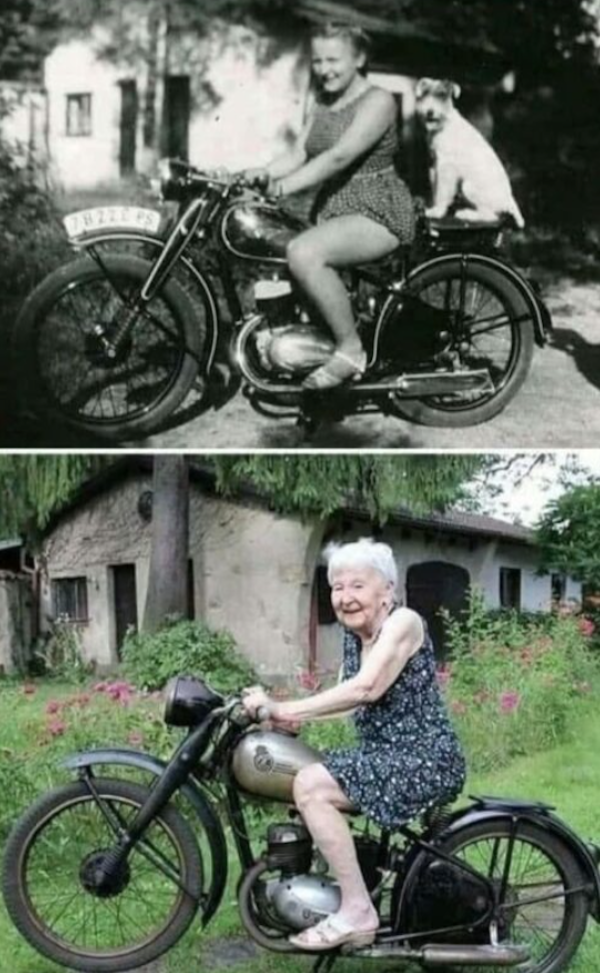




























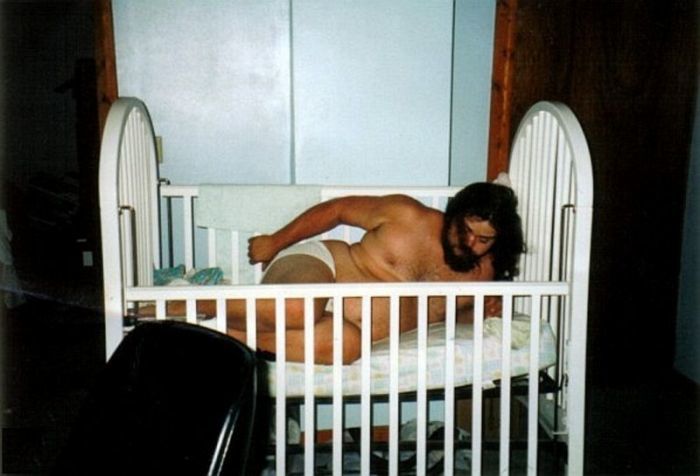
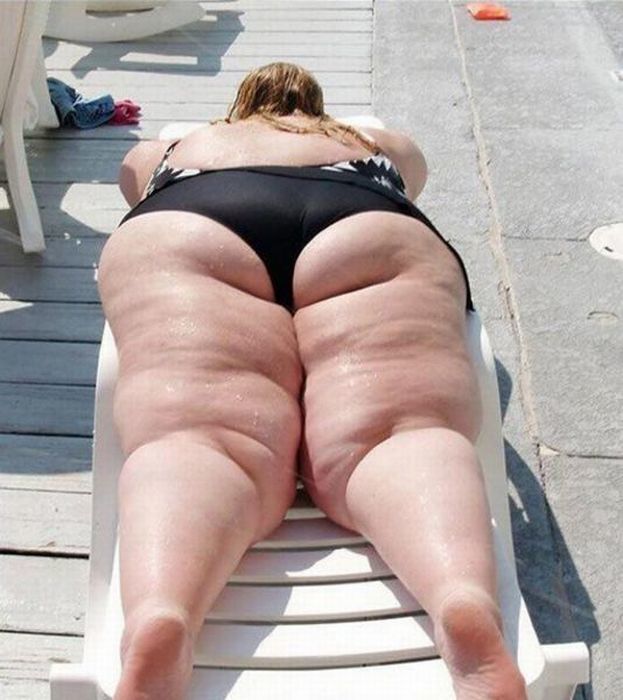
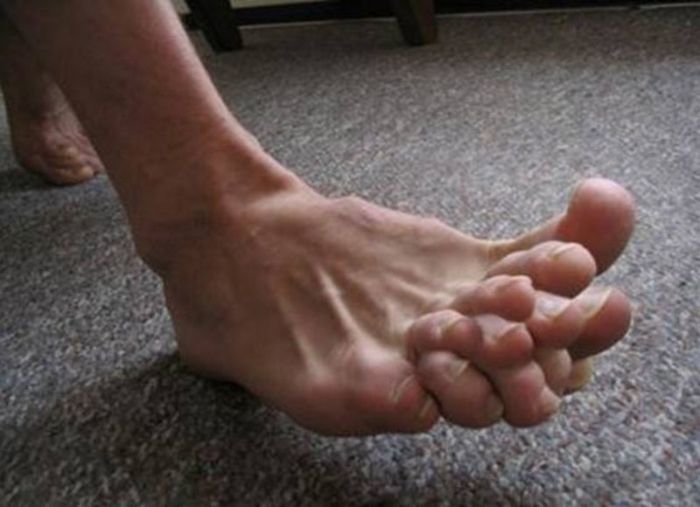

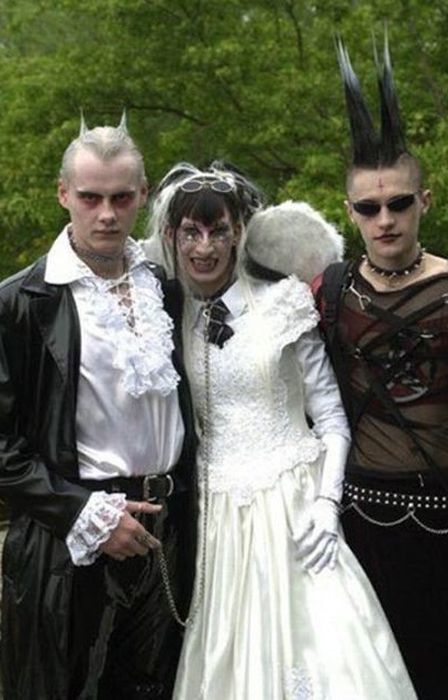





































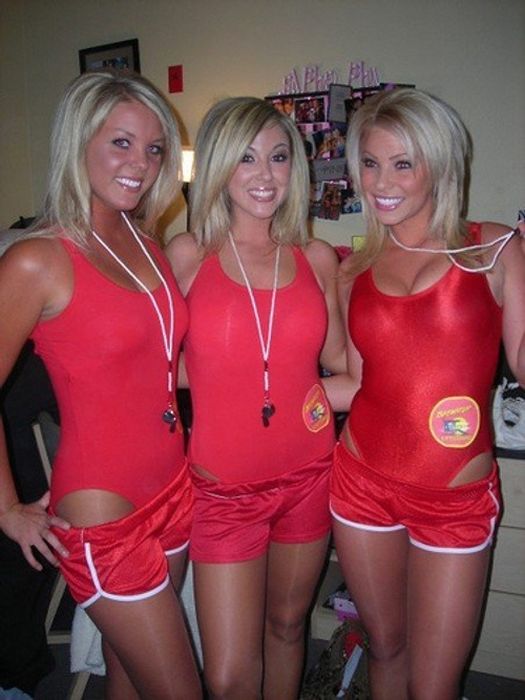
» MEME CELEBRITY...15
» BEFORE & AFTER
» MEMEHARBOR...3
» GIRL FISHING
» HISTORY FACTS * 7 Ways the Year 1968 Changed America *
» WISE TRIVIA QUIZ *Ice hockey is the official sport of which US state? *
» WISETRIVIA ANSWER PAGE
» Word Genius Word of the day * digerati *
» NEW GUEST COUNTER
» APRIL NATIONAL CELEBRATION DAYS APRIL 18 2024
» QUIZ TREAT QUIZ *What are people born in the 50s called? *
» QUIZ TREAT ANSWER PAGE
» National Today * Blah Blah Blah Day – April 17, 2024 United States *
» APRIL NATIONAL CELEBRATION DAYS APRIL 17 2024